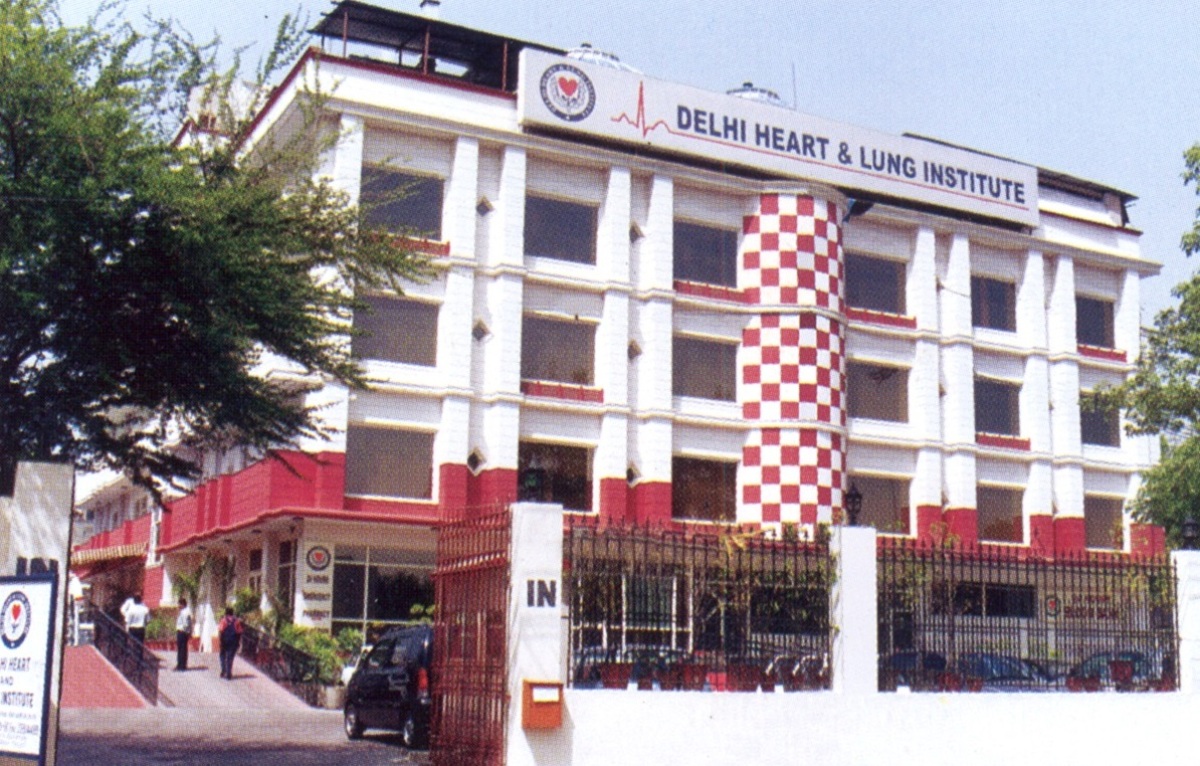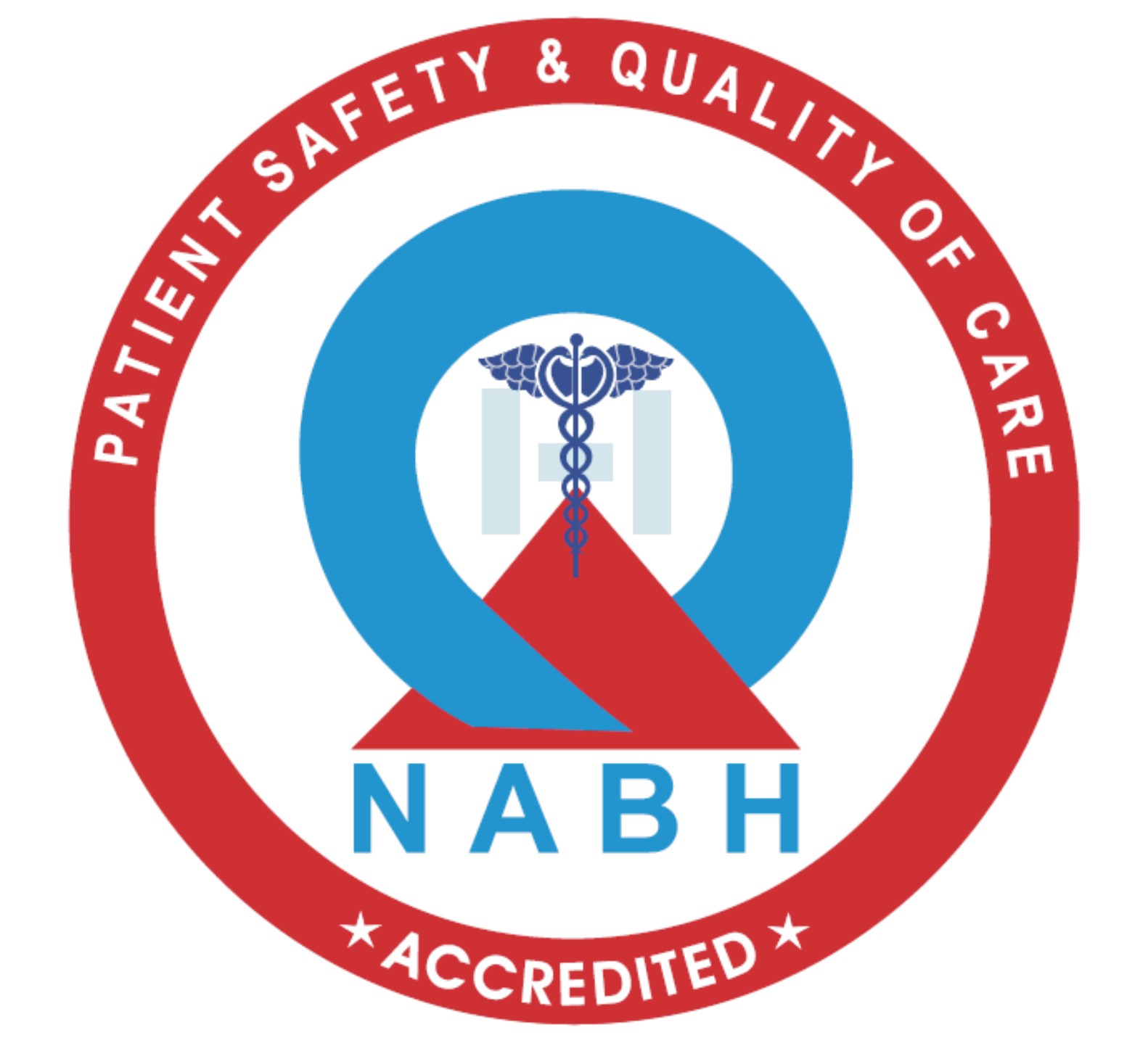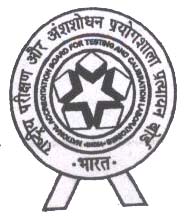Cardiology
Cardiology at Delhi Heart & Lung Institute
At Delhi Heart & Lung Institute, our Department of Cardiology is dedicated to providing comprehensive cardiac care with a patient-first approach. With state-of-the-art technology, advanced diagnostic tools, and a team of highly experienced cardiologists, we specialize in the prevention, diagnosis, and treatment of heart-related conditions.
Our Expertise
- Preventive Cardiology – Early detection, lifestyle management, and risk assessment for heart disease.
- Non-Invasive Cardiology – ECG, Echocardiography, TMT, Holter monitoring, and advanced imaging.
- Interventional Cardiology – Angiography, Angioplasty (PTCA), Stenting, and minimally invasive procedures.
- Heart Failure & Device Therapy – Pacemakers, ICDs, CRT, and advanced heart failure management.
- Critical Cardiac Care – 24×7 emergency services with dedicated Cardiac ICU.
Why Choose Us?
- Renowned cardiologists and interventional specialists.
- Modern Cath Labs equipped with the latest technology.
- Multidisciplinary team for holistic patient care.
- Personalized treatment plans focused on long-term heart health.
Conditions We Treat
- Coronary Artery Disease (CAD)
- Hypertension & High Cholesterol
- Heart Rhythm Disorders (Arrhythmia)
- Heart Valve Diseases
- Congestive Heart Failure
- Congenital Heart Defects
Commitment to Patient Care
Our mission is not just to treat, but to care. From preventive check-ups to life-saving cardiac interventions, we ensure that every patient receives the highest standard of treatment, compassion, and support.
Invasive & Non-Invasive Cardiology
INVASIVE CARDIOLOGY
Coronary Angiography:
Coronary Angiography is a diagnostic procedure which is done to detect blockage in the vessels supplying the heart. It is a procedure done under light sedation. Angiography can be done through the arm vessel (Radial) or leg (Femoral).
The procedure is indicated in patients who have Angina (chest pain) to direct further therapy which may be medical treatment, angioplasty or bypass surgery.
Percutaneous Transluminal Coronary Angioplasty (PTCA)
PTCA is a Cardiovascular interventional procedure where blocked vessels of the heart are opened by minimal access invasive technique. The blood vessels of the heart is a usually accessed through an arm vessel (Radial route) or leg vessel (femoral route) and a guide wire is passed through the blockage and the portion is dilated with a balloon which is passed over the wire. This can be done in an emergency when a patient is in heart attack (Primary Angioplasty) or as an elective case in a stable patient. Following angioplasty usually a medicated (drug eluting) stent is implanted in the vessel. Thereafter, patient is observed in the hospital for a day or two and discharged.
Balloon Mitral Valvuloplasty (BMV)
This is a Cardiac Interventional procedure in which the left sided valve (mitral valve) is dilated by means of a balloon which releases the obstruction of the valve (mitral valve). Rheumatic heart disease is very common in India and mitral stenosis is its common sequelae. This procedure is carried under light sedation and a balloon to passed over the wire through the groin to the left side and the mitral valve is dilated. Similarly, other valves of the heart such an aortic and pulmonary valve can also be opened by means of a minimal access procedure which are known as Aortic Valvuloplasty and Pulmonary Valvuloplasty respectively. The procedure is done under light sedation.
Peripheral Angioplasty
Obstruction of the blood vessel of the thighs and legs cause pain while walking (claudication) and can also cause gangrene of the limbs and intervention can open leg or arm vessels with stents. The procedure is simple and easily amenable to intervention.
Carotid Angioplasty
Obstruction of the blood vessels of the neck can give rise to strokes which is known as Carotid Stenosis. Carotid obstruction is opened by wire, balloon and stent. However such opening can lead to stroke due to embolisation of plaque in the brain during procedure. Therefore, a filter device ( umbrella device) is used to trap the plaque and is necessary during carotid stenting.
NON-INVASIVE CARDIOLOGY
ECHOCARDIOGRAM
Echocardiograpy is the most frequently used and usually an initial cardiac imaging test to evaluate all cardiovascular diseases related to a structural, functional or haemodynamic abnormality of heart or great vessels.
It is used for diagnosis of valve related congenital and acquired disease of heart.
In special cases, trans-esophageal Echo is also done. An endoscope like instrument is passed in the food pipe (through the mouth) to evaluate structure of heart.
TMT
The Treadmill Test (TMT) is an exercise test which is designed to put gradually increasing stress on the heart and circulatory system to evaluate the response of heart to stress and in diagnosis of CAD, determine the functional capacity and estimate prognosis.
A number of times rhythm disorder of heart can also be evaluated by treadmill test.
STRESS TEST
Two types of Stress Testing :
- Exercise using Treadmill
- Pharmacological (by giving I/V medication)
Exercise Stress Testing
Exercise Electrocardiography is one of the most frequent non-invasive modalities used to assess patients with suspected or proven coronary artery disease.
Echocardiogram is done before exercise (at rest) and after exercise to see the effects of stress on heart.
Pharmacological Stress Test
In this dobutamine is given in the form of infusion in creasing the dose at regular intervals as mentioned in the protocol till the THR calculated according to the age of patient is reached. Echocardiogram is done at basal level and after peak dose of dobutamine infusion to see the effect of stress on heart.
HEAD-UP TILT TEST
The tilt table test is a standard and widely accepted test for evaluating patients with syncope. It provides diagnostic evidence indicating susceptibility to neurally mediatd syncope.
This test is performed by tilting the table at 70º angle and observing the patient for 20 min of 70º angle tilt with and without provocation with medicine.
24 HOURS ABPM
24 hours Ambulatory BP monitoring checks the blood pressure of patient multiple times in a day (typically more than 30 readings are taken). The instrument is like a normal BP Apparatus and is worn by patient for 24 hours at home. It gives much better idea about blood pressure of patient and effectiveness of medicines especially white coat hypertension.
Request On Appointment
Request Call Back

Delhi Heart & Lung Institute
# 011-42999999


